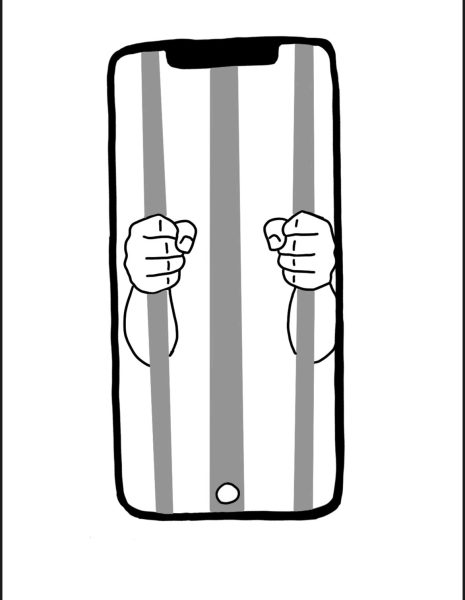College app crash course: what I wish I knew before applying to college
June 9, 2021
Last August, I signed up for a Common Application account and attempted to begin the process I’d been stressing and obsessing over for four years. I realized that though college applications had been an inescapable presence looming over me, I’d never been told how the application actually worked. Here is a list of some confusing parts of the process that I wish I’d known before I tried to apply for college.
1. You apply to schools using online portals, the main ones being the Common and Coalition Application. Through these sites, you select where you want to apply and submit every application through that one account. The Common and Coalition Application portals open on Aug. 1. They each include one main essay called the Personal Essay that will be sent to each school that you apply to through the Common Application. However, some universities ask for additional supplemental essays specific to their school as well as your Personal Essay.

Senior Baraq Lipshitz is likely attending New York University next year. He believes that writing his essay about how his grandmother inspired him to volunteer allowed his reader to see a personal side of him alongside his accomplishments.
“Admissions officers are human and a powerful essay will make or break your acceptance. They can also sense bullsh*t. Complaining is not the way to go, instead focus on a passion or your drive or other good aspects of your personality,” Lipshitz said.
2. If you apply to the University of California (UC) schools, there is only one application with no school-specific questions or essays. This means it requires no extra work to apply to five UC schools versus one, but you do have to pay the $70 application fee for each school. However, all UC school applications are on their own portal. They do not ask for the Personal Essay, rather they require a series of four essays called Personal Insight Questions.
3. You don’t have to spend time researching each school’s due dates and costs to apply. When you create your Application portal, it gives you all of that basic information in one place.
4. You can (and should) choose to apply to Early Decision (ED) or Early Action (EA). However, not all schools offer either or both, and there’s a difference between the two. ED is binding — you can only apply to one school with it and you have to go there if you get in, so only apply ED to a school if you’re fully convinced you want to go there. Most Early Action is not binding, except for “restrictive Early Action,” which asks students to apply early to only one private university. These increase your admissions chances by showing that you are committed to the college and making sure that admissions offices see your application first. It’s helpful to have an early deadline that gets you started on the process, and it feels relieving to have an application in earlier or be accepted by December. Additionally, some schools only offer merit scholarships for EA applicants.
Senior Connor Moon decided to apply with non-binding early action to Bard College in Berlin, where he is now committed.
“Do yourself a favor and apply early, it saves a lot of time and stress,” Moon said.
5. If you go on college tours, ask what the school values are so that you can focus on how or if they apply to you and write about them in a “Why This School?” supplemental essay. Don’t talk about the physical attributes of the campus, the location of the campus or anything general. Instead focus on clubs, culture, traditions, and unique opportunities and classes. Try to find specific departments or programs that appeal to you. If you have to lie about loving a specific curriculum, it’s probably a good sign that you shouldn’t apply, as you won’t suddenly enjoy it once you’re in.
Senior Sydney Kemme is attending Northeastern University next year, which she chose because of its study abroad program, the Northeastern University In program.
“Choose schools based on specific programs and really focus on making those essays the best rather than writing a ton of essays for schools you don’t know much about,” Kemme said.
6. Ask your teachers for letters of recommendation at the end of junior year. Only use junior year teachers unless a sophomore or senior teacher really, really knows you, because colleges want to hear from someone who has recently taught you for a full year. However, if you’re worried that your teachers don’t know you as well as you’d like, many schools have an optional recommendation from a mentor, employer or peer.
7. The extracurricular activities in the Common Application are only 150 characters, which is about half the size of a tweet. When you begin writing your main essay, don’t worry about being redundant by talking about extracurriculars in it, because you can’t really get into detail in the activities section.
8. You can study for the Scholastic Assessment Test (SAT) using free Khan Academy sample tests. Then look at the insights and use the SAT book to practice whatever specific sections you need to work on. You can also take the American College Testing (ACT). However, an increasing number of schools are becoming test optional.
9. Most of all, I wish I’d listened to everyone who told me that it would be okay, and by the time you pick a college, the stress of prestige and selectivity doesn’t feel important anymore.






















